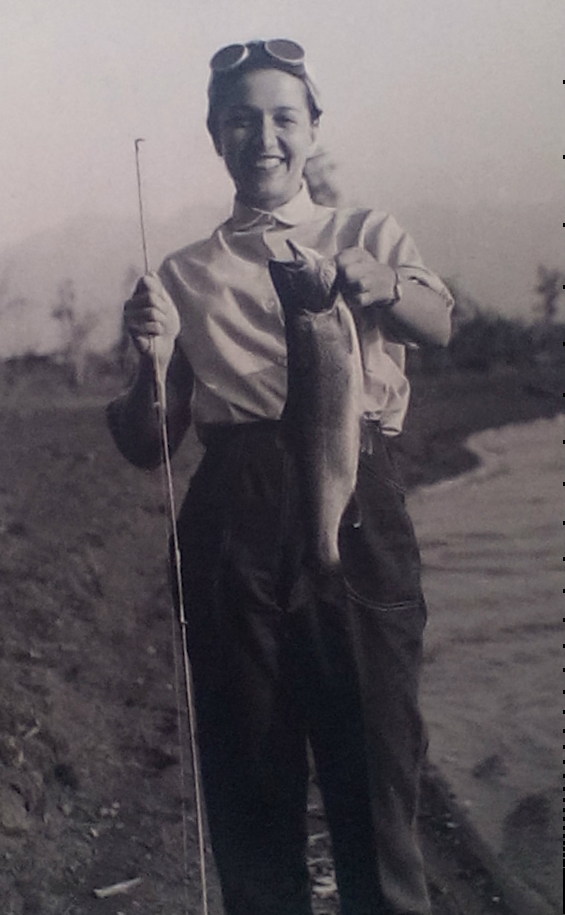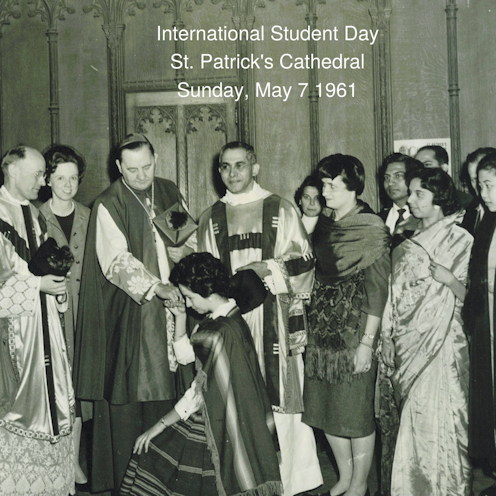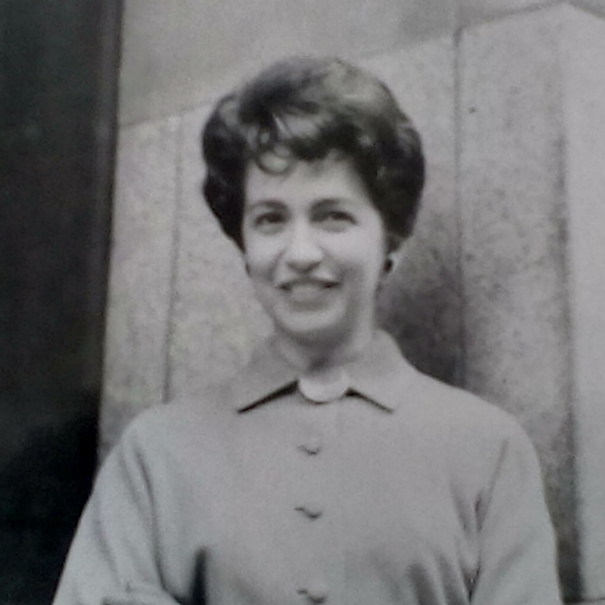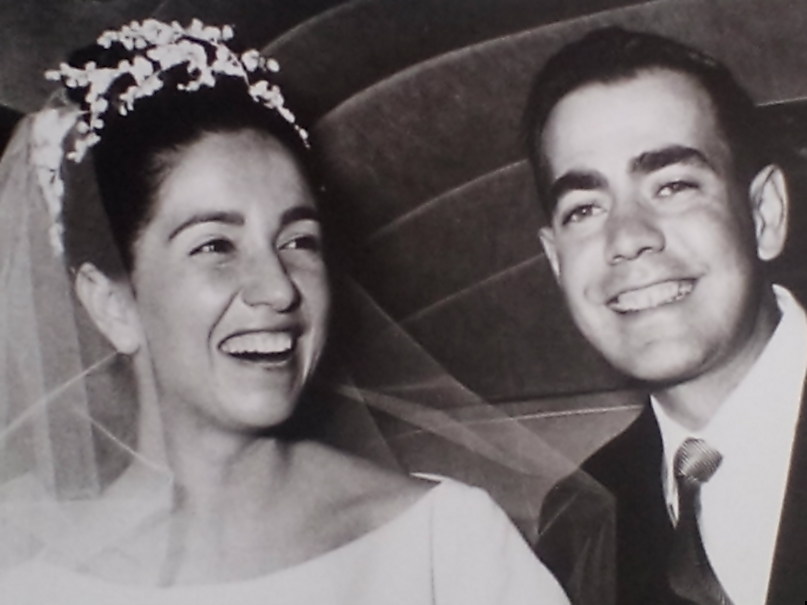In Memoriam: Elena Blair (1926-2016)
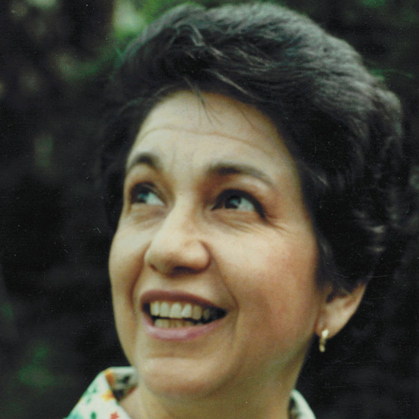
Most of the Xavier University students she taught never knew that Elena Blair was an insurrectionist.
Elena Duvergès Blair, Ph.D. was a Plato scholar and authority on philosophy of woman. In 2005, she received the title of Associate Professor Emerita at Xavier University, where she had taught since 1968. But she was not from Cincinnati, nor even the United States, and she participated in some of the most turbulent events in her native Argentina, where lived until 1960.
A feature article about her in the Cincinnati Enquirer on December 20, 1973 tells of how she was an underground political activist against Juan Perón in the 1954 "Revolución Libertadora" that overthrew him; she was the organizing secretary of the women's arm of the Unión Federal party. In the novel "Operación rosa negra" ("Operation Black Rose") about those events, she was personified as the character Zulema.
"At the time, Perón became a dictator, so I integrated the underground movement by organizing a political party to be ready to take over," she later wrote.
Several years before she had been appointed member of the first Council of University Women of Catholic Action (its Spanish acronym, AUDAC, means courageous in Latin). She traveled through Argentina in 1953 and 1954, making contact with other women.
"I wish we had written down the stories she told us about that time," said her son Paul. "I remember she had a story about narrowly escaping being discovered by the police in a car loaded with revolutionary pamphlets."
Her daughter Michele added, "She also used to tell about how she and others marched to the Plaza de Mayo carrying the Argentine flag overhead, and locked arms in front of the Cathedral in defiance."
These were the times in which Perón had attacked the Catholic church, and his sympathizers were assaulting priests and burning churches.
"When Perón was overthrown I was one of the young people who came to the 'Casa Rosada' (the Argentine equivalent of the White House) as part of the team helping General Eduardo Lonardi, who became president of the country," Elena wrote. Among her papers, her children found her identity card as a private secretary to the administration.
The Lonardi government did not stay in power long, and for several years thereafter she taught philosophy as well as helped organize the School of Philosophy at the Catholic University of Buenos Aires.
Having received a "profesora" degree in philosophy in Argentina, in 1960 she came to the United States on a scholarship from the Pan American Union. She studied philosophy and education at Fordham University, where she received her Master's in Education. There she also met her future husband, George Blair, whom she married in 1964.
George and Elena moved to Cincinnati in 1963, with George originally teaching at Xavier University and Elena briefly at Villa Madonna College. Eventually, however, it was Elena who wound up at Xavier and George at Villa Madonna, which later became Thomas More College. During the late 1960s they had two children, Paul and Michele. In 1966, the family lived for a few months in Argentina where George taught philosophy at the University of Buenos Aires on a Fulbright scholarship.
During the early 1970s, Elena became known for her "Philosophy of Woman" course. "I see today a crisis of identity and ideas in woman," she told the Enquirer. "The solution is in a philosophy of woman. I told my students the way to help in solving the identity crisis (a false dilemma of woman feeling she is either a satellite of man or independently self-centered) is to get a clear idea of what woman is. I said I would be willing to teach a course if they wanted it."
The course resulted from a petition signed by 32 students. "What I am mostly proud about is that the students were the ones who pushed it," she said.
In her course she covered Plato, Aristotle, Karl Marx, Gertrude von le Fort (author of "The Eternal Woman"), Schopenhauer, and Simone de Beauvoir. "What it is to be a woman is behind everything else. There is a lot to do in analyzing all sex-based statements and deciding which are the valid reasons behind them. This is the philosophy of woman I would teach."
"A woman has something to give which is original from man. Woman is a different reality, and this is what I will teach my students. We are in a new paganism today. Plato suggested that the only difference between man and woman was a physical one, which is female chauvinism. Aristotle said that woman was merely a defection of man, which is male chauvinism."
Her interest in a philosophical approach to woman began much earlier in her life. As part of AUDAC, she had already written a chapter on woman and philosophy for their publication "Woman and the University," with a focus on woman's capability of uniquely contributing to the professions and politics.
From her participation in Catholic Action she also developed a great love for the philosophy of St. Thomas Aquinas, which informed her courses on metaphysics, ethics, and philosophy of man.
Having reached her fifties, she decided to finish her doctorate from the University of Buenos Aires and took up the study of ancient Greek. She received her doctorate in 1992 with a dissertation titled "La mujer y lo femenino en Platón" ("Plato on Woman and the Feminine"). In it she catalogued every single passage in which Plato referred to women, and identified the common thread in Plato's thought on the subject. Over the next twenty years she distilled her thesis research into a book, Plato's Dialectic on Woman: Equal, Therefore Inferior, which was published by Routledge in 2012.
As part of her work she discovered that whenever Plato's character of Socrates mentions that someone taught him something, the teacher is always a woman. This led to her article “Women: The Unrecognized Teachers of the Platonic Socrates.”
In Cincinnati, George and Elena were active parishioners at St. Cecilia Catholic church in Oakley. They were also music lovers, with season tickets to the Cincinnati Symphony Orchestra concerts as well as the ballet. "As a child I had ballet classes, with yearly performances, and was immersed in classical music--my father was a violist in the Buenos Aires physicians' orchestra. I remember going to sleep with my father's quartet playing downstairs. The symphony at the Teatro Colón, Wagner's operas, and ballet were important during my youth."
